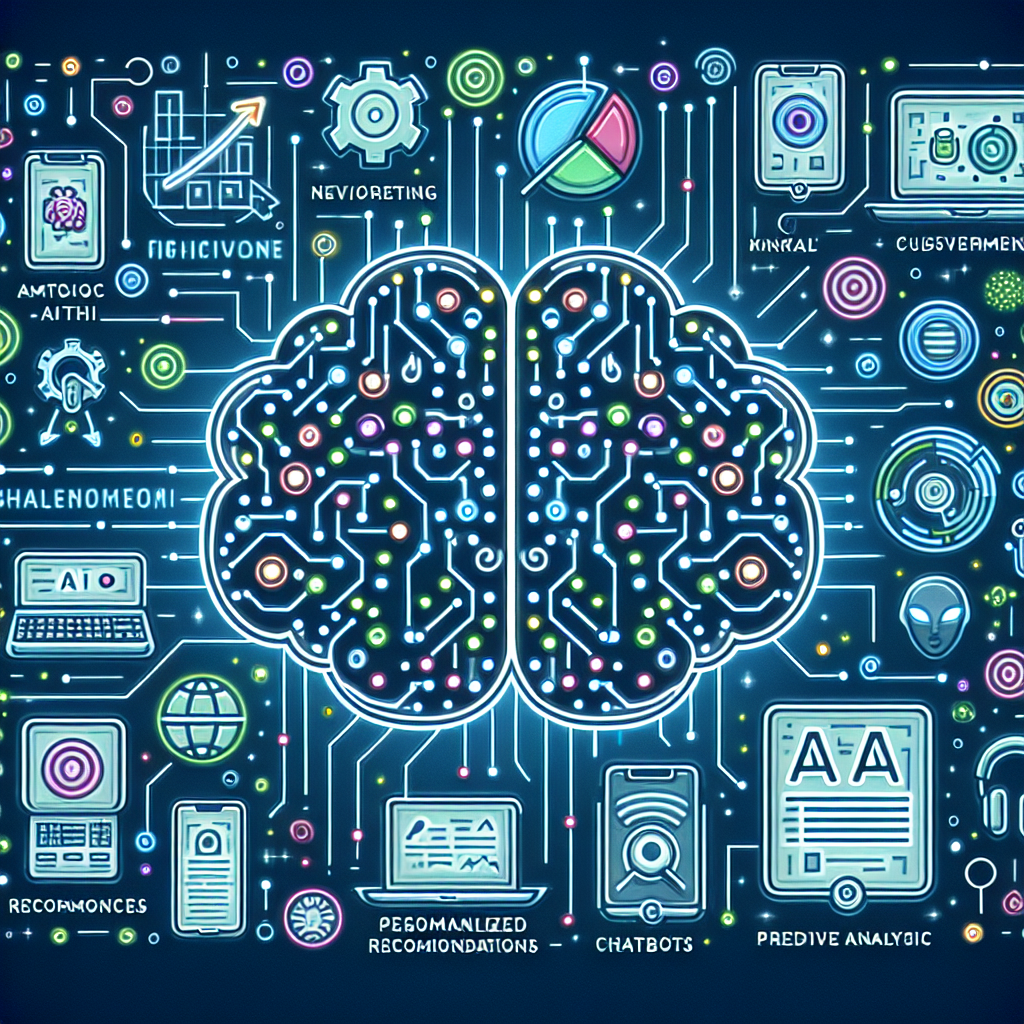Imagine a world where every interaction with a brand feels personalized and tailored to your unique preferences. Thanks to advancements in artificial intelligence (AI), this is becoming a reality. In this article, we will explore the fascinating role of AI in marketing and how it is revolutionizing customer experience. From predictive analytics to chatbots, AI is reshaping the way businesses connect with their audience, providing a more personalized and seamless journey. Join us as we uncover the limitless possibilities of AI in enhancing customer experience.
The Role of AI in Marketing: Enhancing Customer Experience
Artificial Intelligence (AI) has revolutionized numerous industries, and marketing is no exception. With its advanced algorithms and machine learning capabilities, AI has become an invaluable tool for enhancing customer experience in marketing. By understanding the significance of AI in marketing and exploring its benefits, businesses can leverage this technology to personalize interactions, improve customer support, analyze real-time data, and enhance lead generation and conversion. However, it is also essential to consider ethical considerations in AI-powered marketing to ensure responsible and inclusive practices.

Understanding the Significance of AI in Marketing
AI has become a crucial component of modern marketing strategies due to its ability to process vast amounts of data, detect patterns, and make accurate predictions. The role of AI in marketing is to automate processes, provide personalized experiences, and improve overall customer satisfaction. By leveraging AI technology, businesses can gain valuable insights into consumer behavior, identify trends, and make data-driven decisions.
Exploring the Benefits of AI in Enhancing Customer Experience
The implementation of AI in marketing offers several benefits that contribute to an enhanced customer experience. Let’s dive into some of the key advantages:
Personalization through AI
With AI, businesses can now provide highly personalized experiences to their customers. AI-powered algorithms can analyze vast amounts of customer data, including demographic information, purchase history, and browsing behavior, to understand individual preferences and tailor marketing messages accordingly. By delivering targeted and personalized content, businesses can engage customers on a deeper level, ultimately driving higher conversion rates and customer loyalty.
Chatbots and Virtual Assistants
Chatbots and virtual assistants have become increasingly popular in customer service, and for a good reason. These AI-powered tools can handle a wide range of customer queries and provide instant responses, 24/7. Through natural language processing and machine learning, chatbots and virtual assistants can understand customer inquiries, provide relevant information, and even assist with purchasing decisions. By leveraging chatbots and virtual assistants, businesses can provide faster and more efficient customer support, enhancing the overall customer experience.

AI-powered Predictive Analytics
One of the most significant advantages of using AI in marketing is its ability to predict consumer behavior. By analyzing historical data and identifying patterns, AI-powered predictive analytics can forecast customer preferences, anticipate future trends, and optimize marketing efforts. This enables businesses to proactively tailor their strategies, ensuring that they are always one step ahead in meeting customer needs and preferences.
Effective Targeting and Segmentation
AI can significantly enhance targeting and segmentation capabilities in marketing. By analyzing customer data, AI algorithms can identify specific customer segments based on various parameters, such as demographics, behavior, and interests. This enables businesses to create highly focused marketing campaigns that resonate with their target audience, increasing the chances of conversion and customer satisfaction.

Improving Customer Support and Engagement
AI can revolutionize customer support by providing immediate assistance and resolving issues in real-time. Through AI-powered chatbots and virtual assistants, businesses can offer 24/7 support to their customers, creating a seamless and efficient experience. Moreover, AI can analyze customer interactions and sentiment to identify areas for improvement and enhance overall engagement.
Automated Content Creation and Curation
Creating and curating content is a time-consuming task for marketers. However, AI can automate this process by generating personalized content based on customer preferences and behavior. AI algorithms can analyze vast amounts of data to deliver relevant and engaging content to customers, saving time and resources for businesses. Whether it’s generating blog posts, social media content, or email newsletters, AI can ensure that the right content reaches the right audience at the right time.

Real-time Data Analysis and Insights
In today’s fast-paced marketing landscape, real-time data analysis is crucial for strategic decision-making. AI can process and analyze massive amounts of data in real-time, enabling businesses to gain actionable insights quickly. By understanding customer behavior, market trends, and competitor strategies in real-time, marketers can adjust their campaigns and marketing efforts instantly, ensuring maximum effectiveness and customer satisfaction.
Enhancing Lead Generation and Conversion
AI can significantly impact lead generation and conversion rates. By analyzing customer data and identifying potential leads, AI algorithms can predict the propensity to convert and enable businesses to focus their resources on high-quality leads. Through personalized marketing messages and tailored offers, AI can increase customer engagement and drive higher conversion rates. This not only saves time and resources but also improves overall marketing ROI.

Ethical Considerations in AI-powered Marketing
While AI brings about numerous benefits in marketing, it is essential to consider the ethical implications of its usage. Businesses must ensure that AI-powered marketing practices are transparent, responsible, and inclusive. Safeguarding customer data, maintaining privacy, and addressing biases in AI algorithms are crucial considerations to avoid any potential harm to individuals or groups. Adherence to ethical guidelines and continuous monitoring and evaluation of AI systems can help promote trust and maintain ethical standards in AI-powered marketing campaigns.
In conclusion, AI has proven to be an indispensible tool for enhancing customer experience in marketing. By personalizing interactions, improving customer support, analyzing real-time data, and enhancing lead generation and conversion, AI has transformed the way businesses engage with their customers. However, it is essential to consider ethical considerations to ensure responsible and inclusive AI-powered marketing practices. By leveraging the power of AI while maintaining ethical standards, businesses can truly enhance customer experience and drive success in the competitive marketing landscape.

